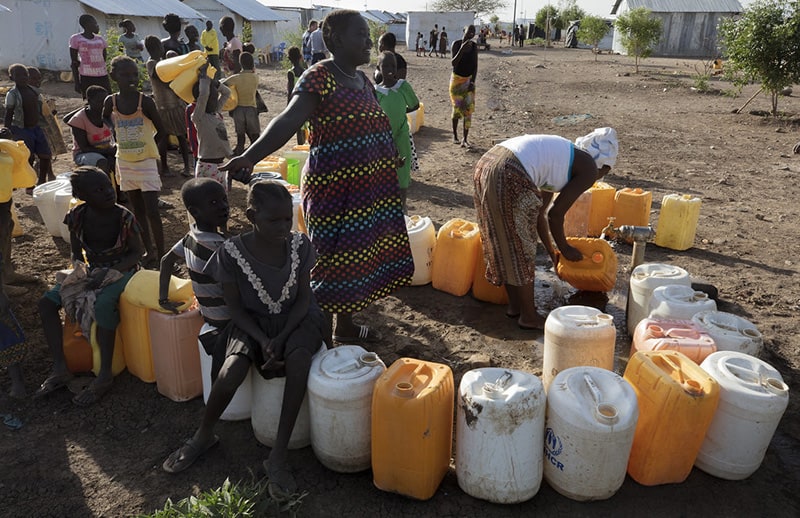
This new challenge fund has been designed to inspire and motivate businesses, social enterprises, and local entrepreneurs to propose competitive and sustainable solutions to some of the challenges people face living in the Kakuma and Kalobeyei areas. By providing seed capital for companies with strong potential for growth, the Fund helps to de-risk the business concept, attract commercial funders, and put the company on a sustainable growth trajectory. This is good for the local communities who increase their access to basic services, have greater choice and more affordable products, and access to new jobs and livelihoods.
KKCF will address the following development challenges in the Kakuma and Kalobeyei areas:
Access to capital
95% of people surveyed in the camp and 99% in the town said “lack of adequate capital” prevents them from opening their own businesses. Although a credit market exists, it is largely informal. Only one-quarter of respondents took out a loan over the last 12 months. While there are two banks providing financial services in Kakuma, only one provides commercial loans to refugees and does so on a limited basis.
Access to Clean Energy
Lack of access to reliable, affordable energy is a major issue and many refugees and members of the host community said they were willing to invest in improved energy services: 28% of households indicated their readiness to bear the full costs of a mini-grid, while 17% said they would pay for a $126 solar home system.
Water and Sanitation
With only two permanent rivers in Turkana County, water is a precious resource. The discovery of an aquifer in 2013 – albeit one too saline for human consumption – could help change things. Intertwined with water is sanitation, with only 39% of refugees having access to latrines.
Livestock
Livestock is the main source of livelihood for the host community. Despite high levels of meat consumption, prices are relatively low. Developing the livestock value chain to ensure pastoralists are organized and have access to the necessary inputs, services, external markets, and finance could support the host community.
Childcare services
About 94% of refugee secondary school-aged children are out of school, along with 91% of host community children of the same age, with the lack of space in area schools being one constraining factor for both. Still, the two communities spend $8.6 million USD a year on education.